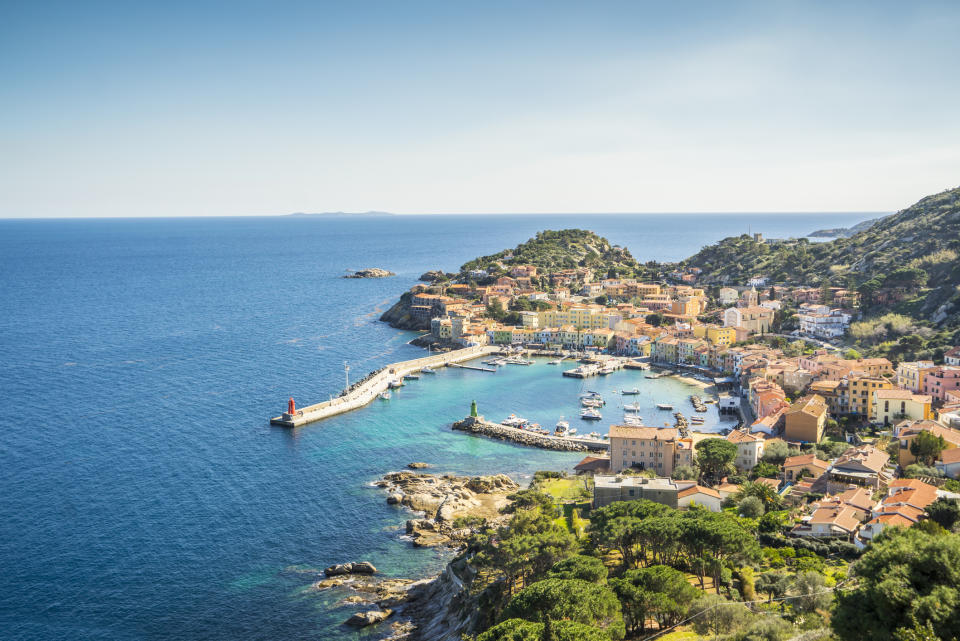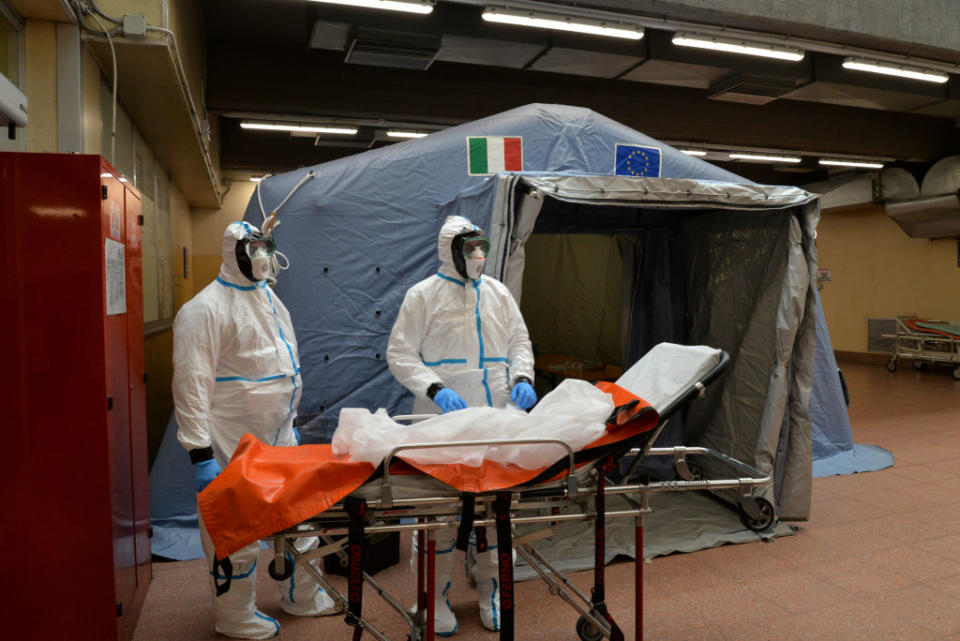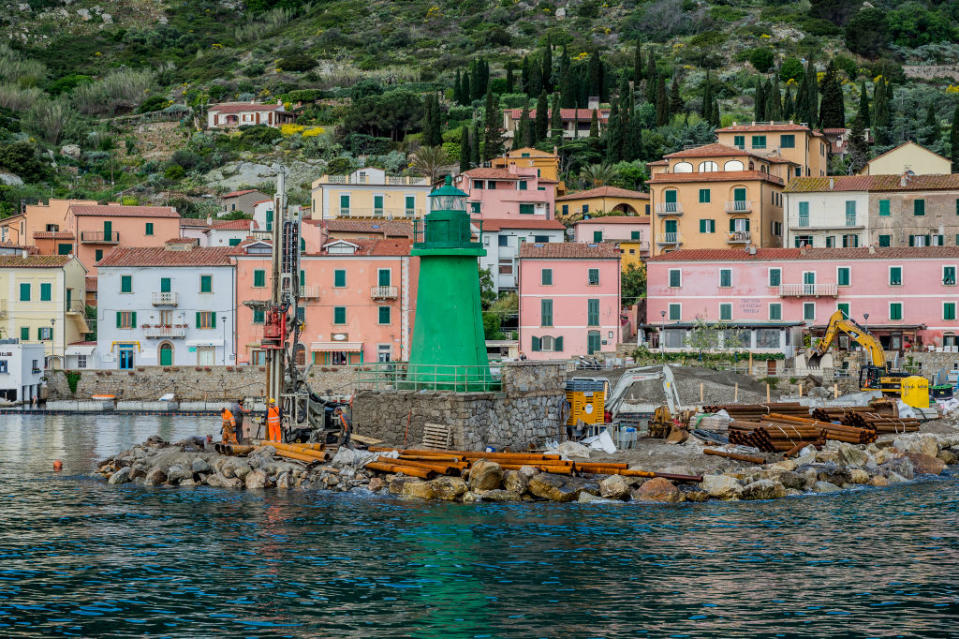Mystery surrounds tiny town that fought off coronavirus
A small island is shrouded in mystery after it has practically remained untouched by the deadly coronavirus despite conditions being a perfect breeding ground for infections.
Giglio Island, off the coast of popular holiday spot Tuscany in Italy, has a population of around 1,500 and is known for its pristine clear sea and unsullied hillside.
Despite its small number of residents, it’s a hotspot for tourists and as the coronavirus started to spread furiously through Italy – which at the beginning of the pandemic became the epicentre and has now recorded more than 246,000 cases and 35,000 deaths – there were fears for the tiny island as a number of cases emerged in people who had visited the area.
Residents are known to socialise in steep alleys and live in dense housing that’s part of a fortress built to protect the island from pirates hundreds of years ago, but even with a lack of social distancing no residents fell ill with coronavirus.
Giglio remains unscathed from infected visitors
Epidemiologist professor at the University of Milan, Paola Muti, was puzzled by the mystery as to why residents managed the escape the clutches of the coronavirus.
According to the Associated Press, the first case of coronavirus on the island was in a man aged in his 60s, who arrived on February 18.
The man was visiting the island for a funeral and was “coughing all the way through” the service, Professor Muti said.

Following that, three more visitors tested positive on the island on March 5, just four days before Italy’s national lockdown.
One of the cases, a German man from northern Italy, had socialised for a number of days with old friends. After a week, he developed a cough and self-isolated after returning a positive coronavirus test.
Other known infections on the island also included a man who had lived in Australia for two years but travelled to Giglio in mid-March during lockdown to visit his parents. He developed a mild fever and tested positive after three days.
Once the lockdown was lifted in Giglio in June, the island has not recorded any more cases, despite Italian tourists flitting in and out.
‘Nobody is sick’
As coronavirus cases first arose in Giglio, Professor Muti and the island’s only doctor Armando Schiaffino shared fears of a rapidly moving local outbreak.
Dr Schiaffino told AP that historically illnesses like chicken pox, the measles and scarlet fever would strike citizens after just a couple of days.

Professor Muti began to wonder if the reason for the lack of spread was something genetic, or whether the Gigliesi just didn’t show symptoms.
“Dr Schiaffino came to me and told me, ‘Hey, look, Paola, this is incredible. In this full pandemic, with all the cases that came to the island, nobody is sick.’ So I said to myself: ‘Right, here we can do a study, no? I am here,’” Professor Muti said.
Why people may not get infected
During her study as to why the virus didn’t spread, the epidemiologist hypothesised those living on the island just weren’t exposed enough to get infected.
Head of infectious diseases at Rome’s Tor Vergata hospital, Massimo Andreoni, agreed with her and said some patients were less capable of spreading the virus for reasons still unclear.

He said, however, that with the Gigliesi marrying through generations, there could be a common genetic variant protecting them.
Professor Muti is now preparing to research further into the genetic makeup of those on the island.
Despite there being no cases on Giglio, residents are still urged to take preventative measures to lower the risk.
Residents and tourists are asked to wear protective masks indoors and in situations where they can’t remain at least a metre way from another person.
They are also encouraged to respect the physical distance of one metre and wash or clean hands often with sanitiser.
With The Associated Press
Do you have a story tip? Email: newsroomau@yahoonews.com.
You can also follow us on Facebook, Instagram and Twitter and download the Yahoo News app from the App Store or Google Play.





